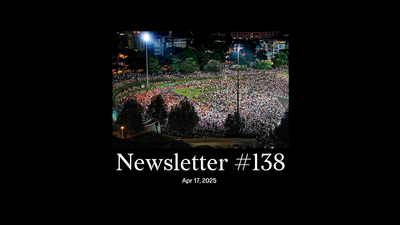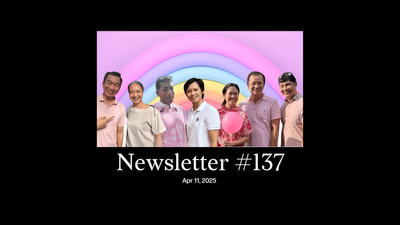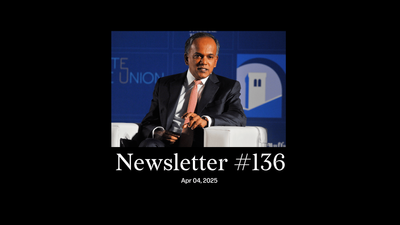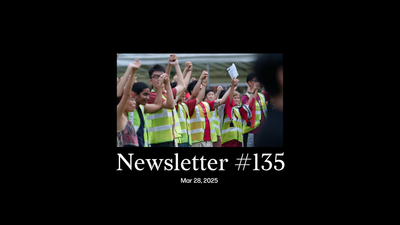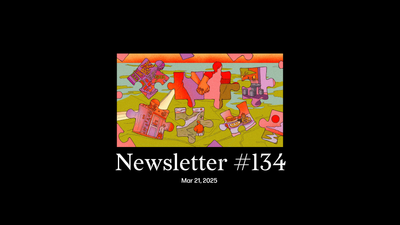Dear reader,
Today we’ve published a profile of Suhaimi Zainul-Abidin, CEO of Quantedge, a leading Singapore-founded hedge fund. Suhaimi’s also commonly known for being the son of Zainul Abidin Rasheed, a former minister of state with the ruling People’s Action Party. Zainul was part of the George-Yeo-led team that lost the seminal 2011 election in Aljunied to the Workers’ Party.
There are a few reasons I’m glad we’ve published this. The first is topical diversity. Is Jom just going to feature artists and lefties? I’ve heard some version of this for months. If you look at our team and our past work, it’s unsurprising that some think this.
But that was never the vision of this “general interest” magazine, one that aspires to be like The New Yorker. We want to cover everything from arts and culture to business and tech. Not only is that in our broader intellectual interest, but it’s also what we think will make for a good independent publication in Singapore.
As such, I’m glad we’re off the mark with our first Business profile. Our first two profiles were of Salty Ng and KC Chew: one artist and, gulp, one leftie. (And not just leftie leh, proper “Marxist”.)
The second, a possible corollary of the first, is that we want to showcase a diversity of opinions, including those with which we disagree: race and National Service (NS), in the case of Suhaimi. With race, the difference is fine, and I’d simply say I’m more on the left than he is.
With NS, the difference is significant. Readers may remember my first ever-piece for Jom, which was on NS. Suhaimi, a major in the Singapore Armed Forces, told me why NS was so important for him personally, giving him self-belief that he’d carry for the rest of his life. He said in every activity he pushed himself as much as he could. (I told him I did the opposite: the bare minimum to get by.)
He also outlined a strong argument for a strong army before appeasing my dovish instincts. “If you ask me what would I most love to see? The whole world at peace. Nobody building weapons and wasting money. That’ll be the ideal. That’s not the world that we live in,” he said.
It was good to hear Suhaimi’s thoughts, and important that we published them. Jomrades may be idealists, but we’re not averse to interrogating our beliefs.
That doesn’t mean, of course, that any view at all is welcome. In a previous newsletter we explained our reasons for not offering a platform to certain viewpoints, such as those calling for the state to criminalise gay people; and those in favour of the death penalty.
While critical of the way Singapore has managed immigration over the past two decades, we also will never publish an extreme, nativist, “Anti-CECA” perspective on this.
As with our other profiles, the intensive time together just helped me get to know somebody a lot better, helped me to make a new friend. For a long time I’ve known of Suhaimi—his brother was my college mate and his father is a friend—but this was our first real chance to hang.
And like the previous two, this profile is a whole-of-Jom production. Lots of people chipped in, including Faris Joraimi, Jom’s history editor, with whom I had long discussions about how to present the conversation on racially sensitive topics, such as “mat lepak, play guitar by the beach”, something Suhaimi said, when remembering what others used to say in his youth.
For his history blurb in Singapore This Week, Faris has experimented with form, which in turn has inspired an interesting discussion at Jom about meaning and “truth” in historical narratives.
Have a read of Suhaimi’s profile, and Faris’s blurb, and reply and let us know what you think.
Jom baca,
Sudhir Vadaketh
Editor-in-chief, Jom
If you've enjoyed our newsletter, please scroll to the bottom of this page to sign up to receive them direct in your inbox.


